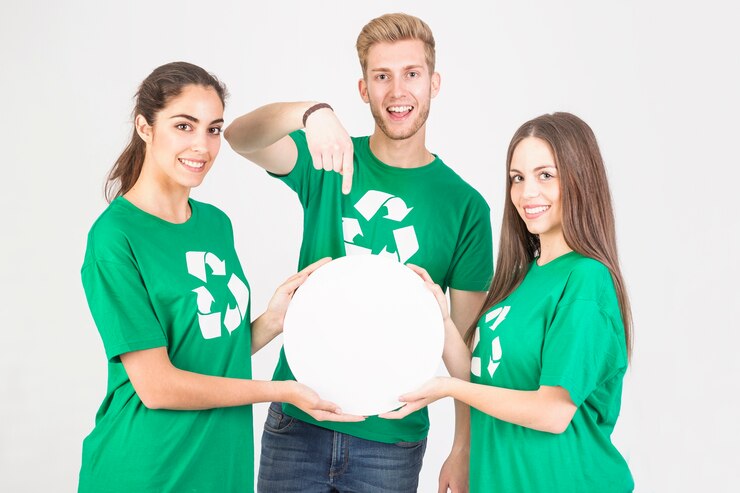The circular economy has emerged as one of the most innovative and necessary solutions to address the environmental and economic challenges of the 21st century. As the planet faces severe issues such as climate change, resource scarcity, and pollution, the transition to a more circular economy has become an urgent need. But what exactly does circular economy mean, and how can both businesses and individuals contribute to a more sustainable future? In this article, we will explore the concept of the circular economy, its benefits, and how each of us, from consumers to large corporations, can actively be part of this shift towards a more responsible future.
What is the circular economy?
The circular economy is an economic model based on the idea of maximizing the use of resources, minimizing waste, and promoting the reuse, recycling, and regeneration of products and materials. Unlike the traditional linear economy model, which follows the “take, make, dispose” cycle, the circular economy seeks to minimize the extraction of natural resources and extend the life of products through repair, recycling, and reuse.
This model not only focuses on environmental sustainability but also on creating a more efficient economic system that can generate new jobs, reduce long-term costs, and promote a fairer distribution of resources.
Benefits of the circular economy
- Reduction of waste and pollution
The circular economy helps reduce the amount of waste generated by promoting recycling and the reuse of materials. By giving new life to products and components, the need for landfill disposal or incineration is diminished, reducing air, water, and soil pollution. - Conservation of natural resources
With a circular economy, the demand for natural resources such as minerals, oil, and gas significantly decreases. This not only helps preserve these finite resources but also reduces the ecological footprint of industries, protecting ecosystems and biodiversity. - Creation of new jobs
As activities like recycling, product repair, and the design of sustainable products are promoted, new job opportunities are created in sectors such as recycling, reverse logistics, and product design innovation. - Long-term economic savings
Although transitioning to a circular economy may involve initial investment, businesses and consumers can save money in the long run by reducing resource consumption, improving energy efficiency, and lowering waste disposal costs.
How businesses can contribute to the circular economy
Businesses play a crucial role in the transition to a circular economy, as they are the main producers of goods and services. Below are some strategies businesses can adopt to contribute to this model:
- Redesign products for durability and repair
Businesses can redesign their products to be more durable and easier to repair, allowing consumers to use them for longer and repair them instead of discarding them. This also facilitates the recycling of products at the end of their lifecycle. - Adopt the “Closing the Loop” strategy
Companies can implement a reverse logistics system where products and materials at the end of their useful life are collected, processed, and reintegrated into the production cycle. An example is the electronic product return program, where old devices are collected for recycling or reuse. - Use recycled and renewable materials
Opting for the use of recycled or renewable materials in the manufacturing of products is one of the most effective strategies to reduce the consumption of natural resources. Companies like Patagonia, for example, have adopted the use of recycled materials in the production of their products, contributing to waste reduction and the conservation of natural resources. - Promote the sharing economy
Businesses can also promote the sharing economy, where consumers have access to products or services without needing to own them permanently. Examples include product rental platforms, such as for bicycles, tools, or vehicles, allowing the maximum use of goods without the need to produce new ones.
How individuals can contribute to the circular economy
Individuals also play a fundamental role in fostering the circular economy. Through small everyday actions, we can significantly contribute to creating a more sustainable future. Here are some ways consumers can do their part:
- Reduce, reuse, and recycle
The basic rule of the circular economy is to reduce the amount of waste we generate, reuse products when possible, and recycle materials so they can be processed and transformed into new products. Consumers can follow these principles by avoiding single-use products, repairing instead of replacing, and properly sorting recyclable materials. - Support sustainable brands
Consumers can choose to support brands and companies that adopt sustainable and circular practices. Buying products from brands that use recycled materials, manufacture ethically, and offer repair and recycling options is a way to foster the circular economy. - Opt for durable and quality products
Instead of buying cheap, low-quality products that are quickly discarded, consumers can choose more durable and high-quality products. Although these products may have a higher initial price, they are more economical in the long run and less harmful to the environment. - Encourage the “second-use” culture
One way to contribute to the circular economy is by encouraging the consumption of second-hand products, such as clothing, furniture, or electronic devices. Second-hand exchange and sales platforms are gaining popularity, allowing consumers to extend the life of products and reduce the demand for new goods.
Conclusion: Towards a sustainable future
The circular economy is not only an environmental strategy but also an opportunity to transform our economy and lives towards a more sustainable future. Both businesses and individuals have key roles to play in this process. By adopting circular practices, from product design to responsible consumption, we can all contribute to a world where resources are managed more efficiently, and environmental impact is significantly reduced. By choosing to support sustainable business models and making responsible decisions in our daily lives, we can pave the way for a more balanced and environmentally respectful future.
